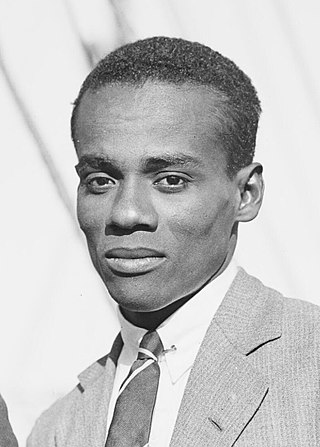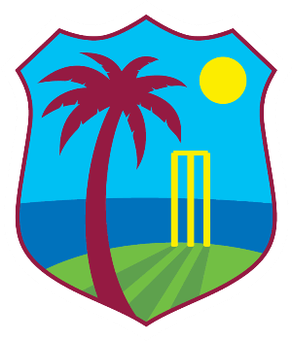
The British West Indies (BWI) were colonised British territories in the West Indies: Anguilla, the Cayman Islands, Turks and Caicos Islands, Montserrat, the British Virgin Islands, Antigua and Barbuda, The Bahamas, Barbados, Dominica, Grenada, Jamaica, Saint Kitts and Nevis, Saint Lucia, Saint Vincent and the Grenadines, British Guiana and Trinidad and Tobago. Other territories included Bermuda, and the former British Honduras.

The Guyana national football team, nicknamed the Golden Jaguars, represents Guyana in international football and is controlled by the Guyana Football Federation. It is one of three South American nations to be a member of the Caribbean Football Union of CONCACAF alongside Suriname and French Guiana. Until the independence of Guyana in 1966, it competed as British Guiana. They qualified for the Caribbean Nations Cup in 1991, coming fourth, and in 2007. Guyana has never qualified for the FIFA World Cup, but on 23 March 2019 they qualified for the first time for the CONCACAF Gold Cup.
Daren Ganga is a former Trinidadian cricketer. He was a right-handed top order batsman and part-time right-arm off spinner. He was named the 2006 West Indies Players' Association 'Test player of the year', Ganga captained the Windies' youth, A and senior teams together with Trinidad and Tobago. Ganga is also the most successful captain ever, with four titles, in West Indian List A tournaments.

Clifford Archibald Roach was a West Indian cricketer who played in West Indies' first Test match in 1928. Two years later, he scored the West Indies' first century in Test matches, followed two matches later by the team's first double century. Roach played for Trinidad, but before having any great success at first-class level, he was chosen to tour England with a West Indies team in 1928 and scored over 1,000 runs. When England played in the West Indies in 1930, he recorded his ground-breaking centuries but had intermittent success at Test level afterwards. He toured Australia in 1930–31 and returned to England in 1933, when he once more passed 1,000 runs, but was dropped from the team in 1935. Within three years, he lost his place in the Trinidad team. Roach was generally inconsistent, but batted in an attacking and attractive style. Outside of cricket, he worked as a solicitor. Later in his life, he suffered from diabetes which necessitated the amputation of both his legs.
The Regional Four Day Competition, formerly known as the Shell Shield, Red Stripe, Busta and Carib Beer Cup, is the West Indies's first-class cricket competition that's run by Cricket West Indies. In the 2013–2014 season the winner of the tournament was awarded the WICB President's Trophy while the winners of the knockout competition were awarded the George Headley/Everton Weekes trophy. In a few previous seasons the winners of the tournament were awarded the Headley/Weekes trophy. On from the 2016–17 season, the Competition was sponsored by Digicel and was known as the Digicel Four Day Championship. Since 2019–20, the competition has been renamed as the West Indies Championship.

The Caribbean Football Union (CFU) is the representative organization for football associations in the Caribbean. It represents 25 FIFA member nations, as well as 6 territories that are not affiliated with FIFA. The Union was established in January 1978 and its member associations compete in the CONCACAF region.

Wilton H. St Hill was a West Indian international cricketer who played in West Indies' first Test match during their inaugural Test tour of England. A right-handed batman who played in a variety of batting positions, he represented Trinidad in first-class cricket between 1912 and 1930 and played in three Test matches in total. Although his Test record was poor, he was highly regarded in Trinidad. In particular, writer C. L. R. James considered St Hill to be among the top batsmen in the world and dedicated a chapter of Beyond a Boundary to him. At the peak of his career, Lord Harris described him as the best batsman in the West Indies.

Joseph A. Small was a West Indian cricketer who played in West Indies' first Test in their inaugural Test tour of England. He scored the first half century for a West Indies player in Test cricket and played two further Test matches in his career. An all-rounder, he played domestic cricket for Trinidad between 1909 and 1932.

Edwin Lloyd St Hill was a Trinidadian cricketer who played two Test matches for the West Indies in 1930. His brothers, Wilton and Cyl, also played for Trinidad and Tobago; in addition, the former played Test matches for the West Indies.
William Vicente Rodriguez is a former West Indian international cricketer who played in five Test matches from 1962 to 1968.

Cricket West Indies (CWI) is the governing body for cricket in the West Indies. It was originally formed in the early 1920s as the West Indies Cricket Board of Control, but changed its name to West Indies Cricket Board (WICB) in 1996. In November 2015, the Board resolved to rename itself as Cricket West Indies as part of a restructuring exercise that would also see the creation of a separate commercial body. This rebranding formally occurred in May 2017.
This article describes the history of West Indies cricket to 1918.
The sixth team of English cricketers toured the West Indies in the 1910–11 season. For the first time the MCC organised the tour. The team was captained by AWF Somerset and played a total of 12 matches, of which 11 are regarded as first-class, between February and April 1911.
The seventh team of English cricketers toured the West Indies in the 1912–13 season. The tour was organised by MCC. As in 1910–11, the team was captained by AWF Somerset. The tour involved a total of 9 matches, all of which are regarded as first-class, between January and March 1913.
Lord Brackley's XI was the fifth team of English cricketers to tour the West Indies, playing in the 1904–05 season. The team was captained by John Egerton, 4th Earl of Ellesmere and played a total of 20 matches between January and April 1905, of which ten are regarded as first-class.
After a gap of five years the fourth team of English cricketers toured the West Indies in the 1901-02 season. The team was organized by H. D. G. Leveson Gower, who was unable to tour, and captained by Mr. R. A. Bennett. Like earlier touring parties it consisted solely of amateurs. They played a total of 19 matches, of which 13 are regarded as first-class, between January and April 1902.
A team of Amateurs under the captaincy of Arthur Priestley toured the West Indies in the 1896-97 season playing matches between January and March 1897. They played a total of sixteen matches of which nine are regarded as first-class. They did not play in British Guiana.
This article describes the history of West Indies cricket from 1946 to 1970.

Federal elections were held in the West Indies Federation for the first and only time on 25 March 1958. The result was a victory for the West Indies Federal Labour Party, which won 25 of the 45 seats in the House of Representatives.
The British West Indies Championships was an annual track and field competition between nations involved in the West Indies Federation and several other Caribbean nations with a British colonial history. Like the federation itself, the competition was short-lived: first held in 1957, it ceased after 1965. The competition was created at a time of much sporting co-operation within the region – a British West Indies team was sent to both the 1959 Pan American Games and the 1960 Summer Olympics.

 Barbados (joined FIFA in 1968)
Barbados (joined FIFA in 1968) British Guiana (joined FIFA in 1988 as Guyana)
British Guiana (joined FIFA in 1988 as Guyana) Grenada (joined FIFA in 1978)
Grenada (joined FIFA in 1978) Jamaica (joined FIFA in 1962)
Jamaica (joined FIFA in 1962) St. Vincent and the Grenadines (joined FIFA in 1988)
St. Vincent and the Grenadines (joined FIFA in 1988) Trinidad and Tobago (joined FIFA in 1964)
Trinidad and Tobago (joined FIFA in 1964)







